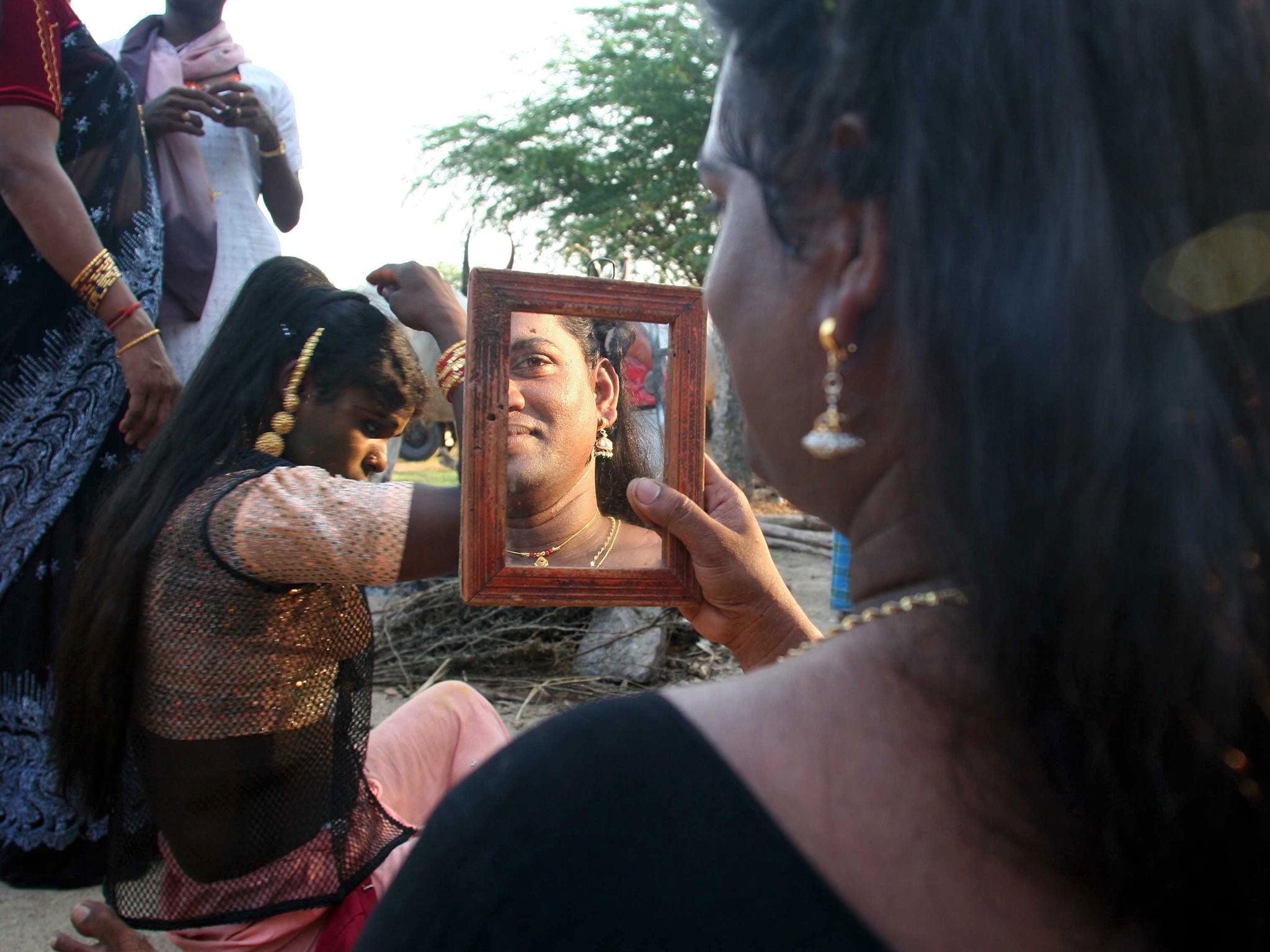Indian transgender group disperses rioting mob by threatening to strip
Hijras, the subcontinent's traditional third gender, step in to quell violence

For centuries, transgender people in India have been treated with a mixture of fear, mockery and confusion. While the “hijras” blessings are sought at the time of a birth, it is believed they also have the power to make a curse. Many transgender people are effectively ostracised.
But this week a group from east Delhi were being celebrated for stamping out a religious riot in their own unique way. Transgender people, who sometimes collect money in the street, often threaten to strip or raise their skirts to intimidate people into offering a few coins.
As communal clashes gripped the Trilokpuri neighbourhood of Delhi, the group of local transgender people went out to confront a mob that was advancing on local homes armed with swords and stones.
The Times of India said the group stood in front of the mob and threatened to start taking off their clothes if the angry men did not turn around and go back the way they had come.
The newspaper said the group then set about organising local people to get involved in a clear up of the bricks, stones and other debris, that had been hurled during the clashes.
“The condition of the area was so bad that people weren’t able to even walk on the roads,” the group’s leader,” Laila Sa, told the newspaper. “Sanitation staff haven’t come after the riots. Someone has to clean these streets as we all have to live here in the end.”
Though police have been deployed to the area, Trilokpuri remains tense and the group has helped out as volunteer guards. “We sit outside on the benches all the time. Iron gates are installed at the entrance, segregating one block from another. We take turns to guard the gate,” said Laila Sa.
Join our commenting forum
Join thought-provoking conversations, follow other Independent readers and see their replies
Comments
Bookmark popover
Removed from bookmarks